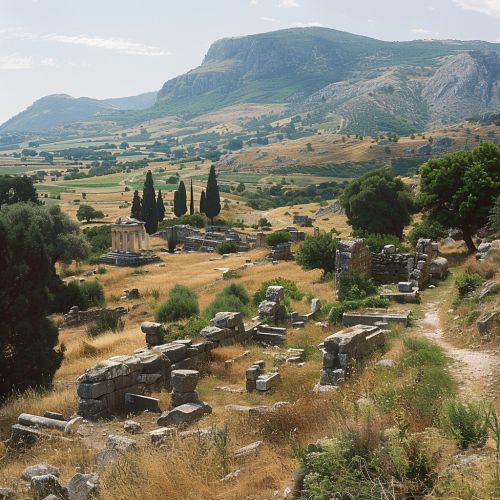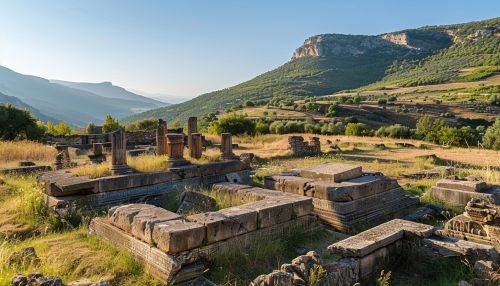Molossians
Overview
The Molossians were an ancient Greek tribe and kingdom that inhabited the region of Epirus since the Mycenaean era. On their northern frontier, they bordered the Chaonians and on their southern frontier they bordered the kingdom of the Thesprotians. The Molossians were part of the League of Epirus until they sided with Rome in the Third Macedonian War (171–168 BC). The result was the defeat of Perseus of Macedon and the establishment of Roman supremacy over the eastern Mediterranean world. The Molossians fell under Roman rule in 167 BC, being part of the Roman province of Epirus Vetus, and later of Epirus Nova, after the reform of Roman provinces by emperor Diocletian.


History
The earliest known Molossian king was Pyrrhus, who fought alongside the Greeks in the Trojan War. Pyrrhus' descendants ruled the Molossians for several generations. The Molossian kingdom reached its zenith under Pyrrhus of Epirus, who was a cousin of Alexander the Great. Pyrrhus, renowned for his military skills, brought the kingdom into conflict with Rome during his attempt to create a pan-Hellenic state under his rule.
Culture
The Molossians were renowned for their martial prowess, and their warriors were considered among the finest in Greece. They were also known for their hounds, the Molossus, which were used in war and hunting. The Molossians were also known for their simple, austere lifestyle, which was typical of the mountainous regions of Epirus.
Economy
The economy of the Molossians was based on agriculture, livestock, and trade. They were known for their excellent breed of sheep and goats, and their wool was highly prized. The Molossians also controlled important trade routes in the region, which contributed to their wealth and power.
Religion
The Molossians worshipped the Greek pantheon of gods, but they also had their own local deities, such as Zeus Molossus. They also practiced hero cults, and the tombs of their kings were treated as sacred sites.
Legacy
The Molossians played a significant role in the history of ancient Greece. Their kingdom was one of the major powers of the Hellenistic period, and their culture and institutions had a profound influence on the development of Roman civilization.
